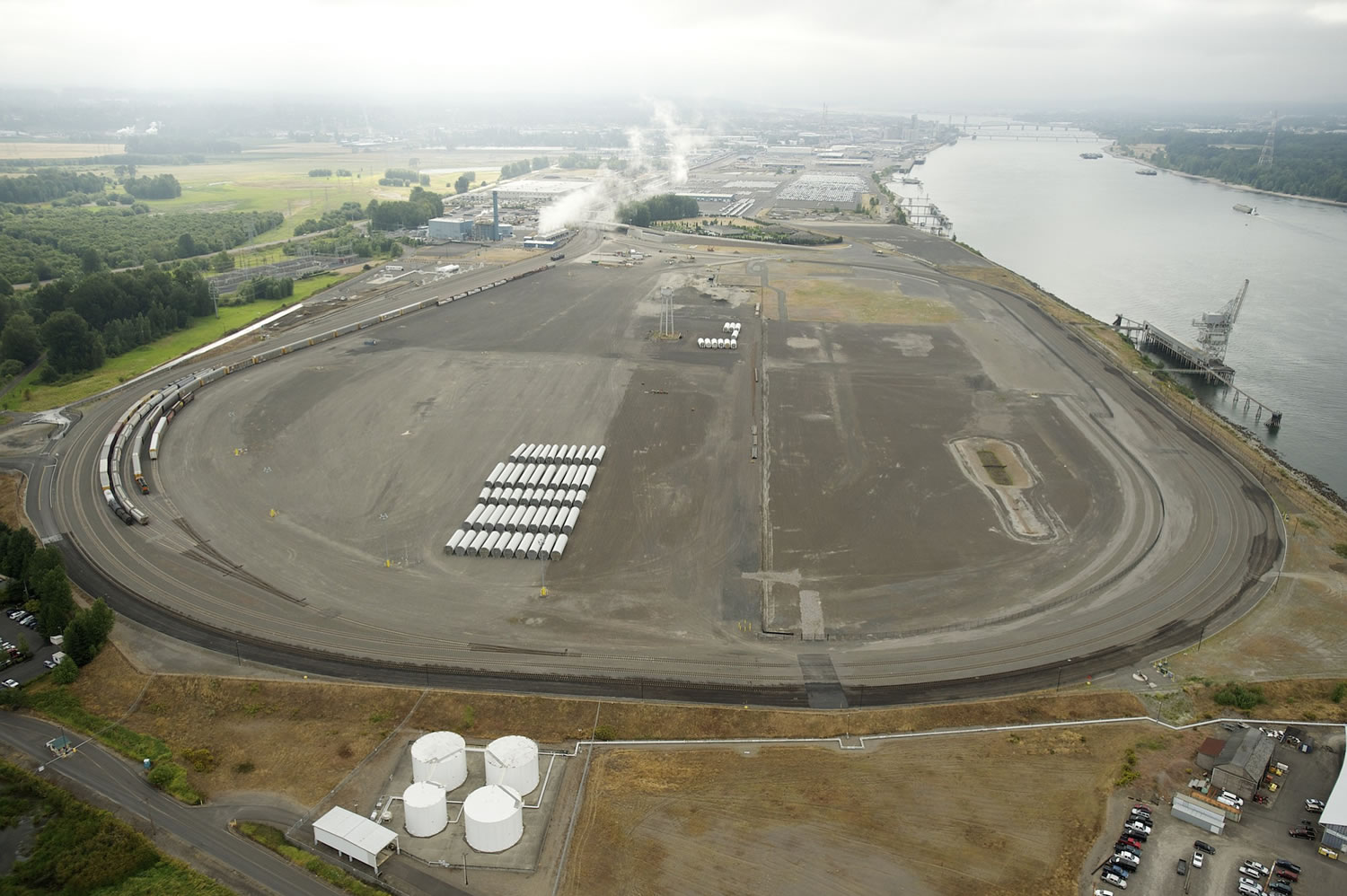Related Coverage
Port’s critics celebrate victory for disclosure
A mostly unredacted lease released for the first time Thursday reveals new details about an agreement to build the nation’s largest oil-by-rail terminal at the Port of Vancouver.
The document, released by the port as part of a legal settlement, discloses several pieces of information that had previously been hidden from public view. Among the key takeaways:
o The companies behind the proposed oil terminal, Tesoro Corp. and Savage Cos., have the ability to expand or build a second oil-by-rail facility if they exceed handling an average of 400,000 barrels of crude per day with the first terminal.
o The lease’s “conditions precedent outside date” — the date when the port could potentially walk away from the agreement — is Aug. 1, 2016.
o The lease could pay the port at least $33.7 million in wharfage, service and facilities fees over 10 years. That’s in addition to the $45 million in total lease revenue to the port that had already been disclosed.
The disclosure of information in the contract was triggered by a settlement the port reached with Clark County Natural Resources Council and attorney John Karpinski, a member of the group. The settlement stems from a lawsuit filed in May by the resources council and Karpinski against the port.
The complaint alleged the port violated the state’s public records law by withholding information in the lease that port commissioners unanimously approved, in 2013, with Tesoro and Savage. As part of the settlement, the port paid $45,000 to the plaintiffs.
“The port evaluates public records requests as they are submitted and reevaluates each time a new request is made,” the port said in a news release. “The port provided a redacted copy in May 2014 to protect information that, if made public, ran a high risk of harming the port’s ability to compete and generate economic benefit for the community.”
Not everything was revealed in the document released Thursday. Barrel-per-day ranges that trigger various wharfage fees are still blacked out in the latest version. The port has previously cited the Uniform Trade Secrets Act in maintaining redactions in the agreement.
Tesoro and Savage, doing business together as Vancouver Energy, want to build an oil transfer terminal at the port capable of handling an average of 360,000 barrels of crude per day. Oil would arrive by train, then be transferred to marine vessels bound for other West Coast facilities, according to the companies.
The lease, however, raises the possibility of moving even more oil through a Vancouver facility. The document includes a clause stating that Tesoro and Savage would have a “first right of opportunity” to lease additional property for a second oil-by-rail facility if the first terminal moves more than 400,000 barrels per day.
That threshold was negotiated at the time the lease was signed in 2013, Tesoro spokeswoman Jennifer Minx said in an email. The companies have designed the proposed terminal to handle 360,000 barrels of crude per day, she said.
“We don’t intend to seek permits for more than that amount and have no plans to develop a second terminal at the Port of Vancouver,” Minx said.
Walk-away date?
Thursday’s disclosure also underscores what many opponents of the terminal believe is a chance for the port to get out of the agreement. That’s the “conditions precedent outside date,” now known to be less than a year away.
A state Energy Facility Site Evaluation Council review of the project has already stretched for nearly two years, and still has a long way to go. It’s possible that the Aug. 1, 2016, deadline could arrive before Tesoro and Savage have secured the necessary permits to build the oil terminal.
If that happens, the port will have a decision to make, said Miles Johnson, an attorney with environmental group Columbia Riverkeeper, which opposes the project. The port can either walk away from the lease at that time, he said, or waive those terms of the agreement. Either way, that decision should be made in public view, Johnson said.
The port has resisted repeated calls from opponents to cancel the lease. But the date identified in the agreement undermines one of the port’s main arguments for sticking to it, said Karpinski, one of the plaintiffs who brought the open records lawsuit.
“A lot of people … believe that this deal is not in the best interest of the community,” he said. “The fact that the port has a right to walk away at a particular point in time, without any liability, means that when and if we ever get to that point … (the port) can’t hide behind the terms of the contract to say, ‘No, we’re stuck.’ “
Karpinski said opponents of the oil terminal will use the newly released lease information to continue pressuring the port to extricate itself from the contract.
“We already have been and we see no reason to stop now,” he said.
Any lease has a window of time built into it for due dilligence, and the agreement with Tesoro-Savage is no different, said port spokeswoman Abbi Russell. But there are options for an extension or waiver to ensure there’s enough time to go through that process, she said.
Russell and Minx both said they’re hopeful that the state review will be completed in a timely fashion. EFSEC will eventually make a recommendataion to Washington’s governor for a final decision on the project.
Other details revealed in the lease include the various fee rates the companies would pay to the port, and the $33.7 million total. The port has now released three versions of the document since 2013, each with fewer redactions than the one before.
Reporter Aaron Corvin contributed to this story.




